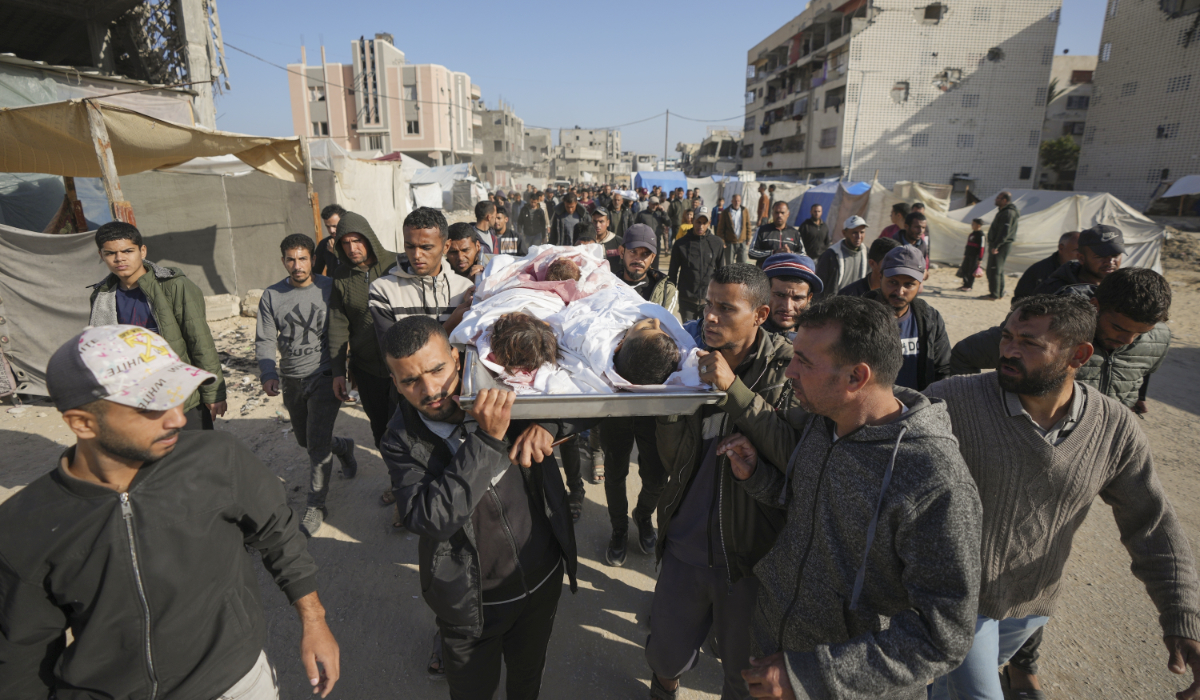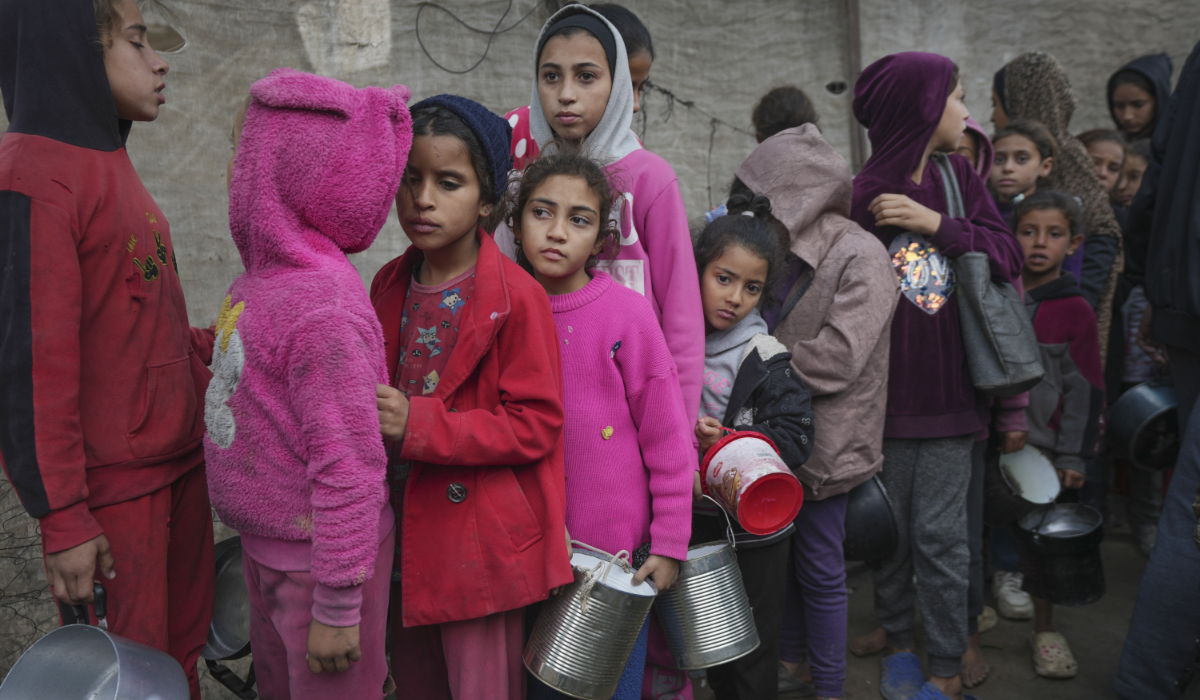RIYADH: Israel carried out strikes against Iran early Saturday, saying it was responding to missile attacks conducted by Tehran earlier in the month.
The military announced the action on the social media platform X: “Right now the Israel Defense Forces is conducting precise strikes on military targets in Iran”.
Air defense systems in Tehran could be seen shooting down projectiles over the east of the city, prompting authorities to shut down Iranian air space.
Hours later, Israel said that it had completed military actions against Iranian military targets and said its planes had returned home safely.
The attacks had been expected for weeks, after Iran struck mainland Israel on Oct. 1, and US officials said they had received advanced notice of the Israeli actions.
The Iranians confirmed that military sites in the provinces of Ilam, Khuzestan and Tehran had been struck.
In its statement, the IDF said: “The regime in Iran and its proxies in the region have been relentlessly attacking Israel since October 7th— on seven fronts— including direct attacks from Iranian soil. Like every other sovereign country in the world, the State of Israel has the right and the duty to respond.
“Our defensive and offensive capabilities are fully mobilized. We will do whatever necessary to defend the State of Israel and the people of Israel,” said the statement read by Rear Admiral Daniel Hagari, chief spokesman of the Israel Defense Forces.
In Tehran, the Iranian capital, the sound of explosions could be heard, with state-run media there initially acknowledging at least six blasts were heard around Tehran and saying some of the sounds came from air defense systems around the city.
A Tehran resident told The Associated Press that at least seven explosions could be heard, which rattled the surrounding area. The resident spoke on condition of anonymity for fear of reprisals.
Iran’s state TV later said that operations at Tehran’s airports including Imam Khomeini International airport were “normal.”
“Operations at Imam Khomeini International Airport and Mehrabad Airport are normal and they continue to operate according to the schedule,” the state TV presenter said, citing the chiefs of Mehrabad and Imam Khomeini airports.
Israel’s strikes on Iran did not include attacking Iranian nuclear facilities or oil fields, and focused on military targets, NBC News and ABC News reported, citing an Israeli official.
In Washington, White House National Security Council spokesman Sean Savett said the “targeted strikes on military targets” are “an exercise of self-defense and in response to Iran’s ballistic missile attack against Israel on October 1.”
The United States was “informed beforehand and there is no US involvement,” a US defense official told AFP, under the condition of anonymity.
The official did not say how far in advance the United States had been informed or what had been shared by Israel.
Meanwhile, Syrian state media said Israeli air strikes also targeted some military sites in central and southern Syria.
Iran has launched two ballistic missile attacks on Israel in recent months amid the ongoing Israel-Hamas war in the Gaza Strip that began with the Hamas attack on Israel on Oct. 7, 2023. Israel also has launched a ground invasion of Lebanon.
The strike happened just as US Secretary of State Antony Blinken was arriving back in the US after a tour of the Middle East where he and other US officials had warned Israel to tender a response that would not further escalate the conflict in the region and exclude nuclear sites in Iran.
Israel had vowed to hit Iran hard following a massive Iranian missile barrage on Oct. 1. Iran said its barrage was in response to deadly Israeli attacks against its proxy in Lebanon, Hezbollah, and it has promised to respond to any retaliatory strikes.
Israel and Iran have been bitter foes since the 1979 Islamic Revolution. Israel considers Iran to be its greatest threat, citing its leaders’ calls for Israel’s destruction, their support for anti-Israel militant groups and the country’s nuclear program.
Israel and Iran have been locked in a yearslong shadow war. A suspected Israeli assassination campaign has killed top Iranian nuclear scientists. Iranian nuclear installations have been hacked or sabotaged, all in mysterious attacks blamed on Israel. Meanwhile, Iran has been blamed for a series of attacks on shipping in the Middle East in recent years, which later grew into the attacks by Yemen’s Houthi rebels on shipping through the Red Sea corridor.
But since Hamas’ Oct. 7 attack, the battle has increasingly moved into the open. Israel has recently turned its attention to Hezbollah, which has been firing rockets into Israel since the war in Gaza began. Throughout the year, a number of top Iranian military figures have been killed in Israeli strikes in Syria and Lebanon.
Iran fired a wave of missiles and drones at Israel last April after two Iranian generals were killed in an apparent Israeli airstrike in Syria on an Iranian diplomatic post. The missiles and drones caused minimum damage, and Israel — under pressure from Western countries to show restraint — responded with a limited strike.
But after Iran’s early October missile strike, Israel promised a tougher response.
- With Agencies

























